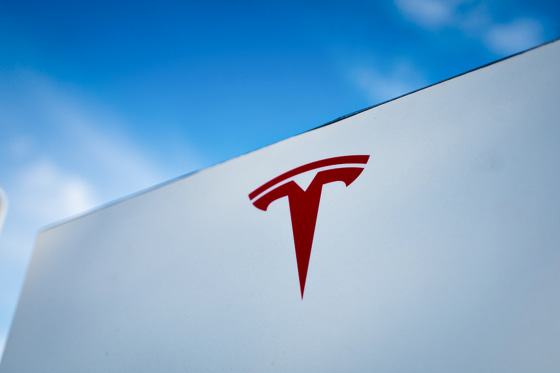Targeted Attack on Tesla Facility in Las Vegas Sparks National Debate
On March 18, 2025, a shocking and deliberate act of violence unfolded at the Tesla Collision Center in Las Vegas, Nevada. The incident, described by authorities as a "targeted attack," caused significant damage to multiple Tesla vehicles and the facility itself. As investigators work relentlessly to uncover the perpetrator responsible for this alarming crime, the event has ignited nationwide discourse about the impact of polarized political sentiments and the rising wave of violence against businesses associated with contentious leaders. Here's a closer look at this unfortunate event and the broader issues it highlights.
Details of the Attack
Taking place in the early hours of Tuesday morning, the attack led to severe destruction. Five Tesla vehicles were damaged, with two completely engulfed in flames, rendering them unsalvageable. Investigators believe Molotov cocktails were used to ignite the fires, a method indicative of the calculated nature of the assault. Compounding the destruction, reports revealed that at least three gunshots were fired, further escalating the intensity of the attack. Additionally, the facility's entryway bore the spray-painted word “RESIST” in bright red, signaling a deliberate political or ideological motive behind the vandalism.
The incident left the facility in chaos, marking yet another alarming addition to a series of recent acts of vandalism and arson targeting Tesla properties across the nation.
The Investigation
Highlighting the gravity of the attack, the FBI’s Joint Terrorism Task Force has teamed up with the Las Vegas Metropolitan Police Department to investigate the crime. Authorities are treating the incident as a potential case of domestic terrorism, given its apparent premeditation and ideological messaging.
Eyewitness accounts describe the suspect as dressed in all black during the early hours of the attack. Despite the best efforts of law enforcement, the individual responsible remains unidentified. However, officials have assured the public that this case is being actively pursued and is of the highest priority.
The attack underscores growing political hostilities aimed at Tesla, its CEO Elon Musk, and the perceived ideologies tied to their activities. Law enforcement agencies are working to determine whether this act aligns with the broader trend of anti-Tesla protests taking place nationwide.
The Bigger Context: Tesla and Political Fallout
This event cannot be viewed in isolation; it is part of a larger wave of backlash against Tesla and its controversial CEO, Elon Musk. Musk’s involvement in the Trump Administration’s cost-cutting task force has drawn sharp criticism from various activist groups. Detractors argue that Musk’s policies and affiliations exacerbate corporate overreach and harm marginalized communities. This connection has placed Tesla at the center of a firestorm, provoking frequent protests and acts of vandalism targeting the company's infrastructure.
The attack on Tesla’s Las Vegas facility represents the latest escalation in the nationwide pushback against Musk and Tesla alike. Over recent months, numerous Tesla facilities have become the sites of arson, graffiti, and other acts of destructive protest. While these acts point to troubling animosity, debates are growing over how effective or appropriate violent actions are as a form of protest.
Responses from Elon Musk, Tesla, and Officials
Tesla CEO Elon Musk swiftly responded to the attack on social media, categorizing it as "terrorism" and condemning the rising tide of violence against his company. Musk expressed concerns about the dangers of such attacks, highlighting the potential risks for Tesla employees and local communities exposed to these volatile acts.
Nevada Attorney General Pam Bondi backed Musk’s sentiment, labeling the incident as "domestic terrorism" and promising accountability under the full weight of federal law. Bondi stressed that these acts of violence were unacceptable and would be treated as criminal offenses carrying severe penalties.
The Road Ahead: Broader Implications
The attack on Tesla's Las Vegas facility serves as a stark reflection of the societal divisions that have become increasingly pronounced in recent years. While protests against Tesla and Musk’s political affiliations have garnered attention, violent incidents like this raise tough questions about the trajectory such dissent is taking.
Violence not only risks lives but also undermines the legitimacy of any cause. As public figures, political leaders, and activists respond to this incident, a collective call has emerged urging nonviolent resistance and constructive dialogue. These channels, though less dramatic, are more effective in driving meaningful change.
This attack also illustrates the growing vulnerability of businesses tied to politically divisive figures. For Tesla, balancing its business goals with the political storm surrounding its leadership has become a pressing challenge. As such, this incident highlights an urgent issue: how deeply public frustrations over politics and corporate accountability can spiral into dangerous territory.
Moving Forward
While authorities continue their search for the individuals responsible for this act, the incident serves as a valuable reminder of the potential consequences of unchecked polarization. Businesses, government agencies, and communities are being called upon to remain vigilant, prioritize security, and advocate against violence as a form of protest.
As Tesla confronts the fallout of this targeted assault, the company also faces intensifying scrutiny over its leadership's polarizing role in the public sphere. This attack, though shocking, is emblematic of larger national tensions—tensions that will require deliberate, collective efforts to address and resolve in a safe and constructive manner. The hope remains that effective communication and law enforcement intervention will prevent similar situations from escalating further.
